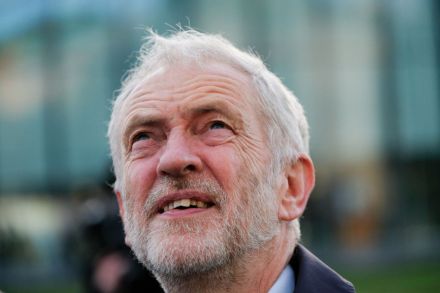Jeremy Corbyn: the EU must be defeated
Oh dear. Jeremy Corbyn was caught out last week after a video emerged of him claiming that the European Union was creating a ‘military Frankenstein’. It now seems as if that criticism of EU wasn’t a one off. Here is Corbyn making a speech at a rally in 2010 in which he says the EU must be ‘defeated’: He told the crowd: ‘They – the worlds bankers – the international Monetary Fund, the European Union, are utterly united in what they want. Utterly united in deflation, suppressing the economy and creating unemployment. We need to be equally united…to show that the voice of those campaigning for peace, justice, socialism, will





















